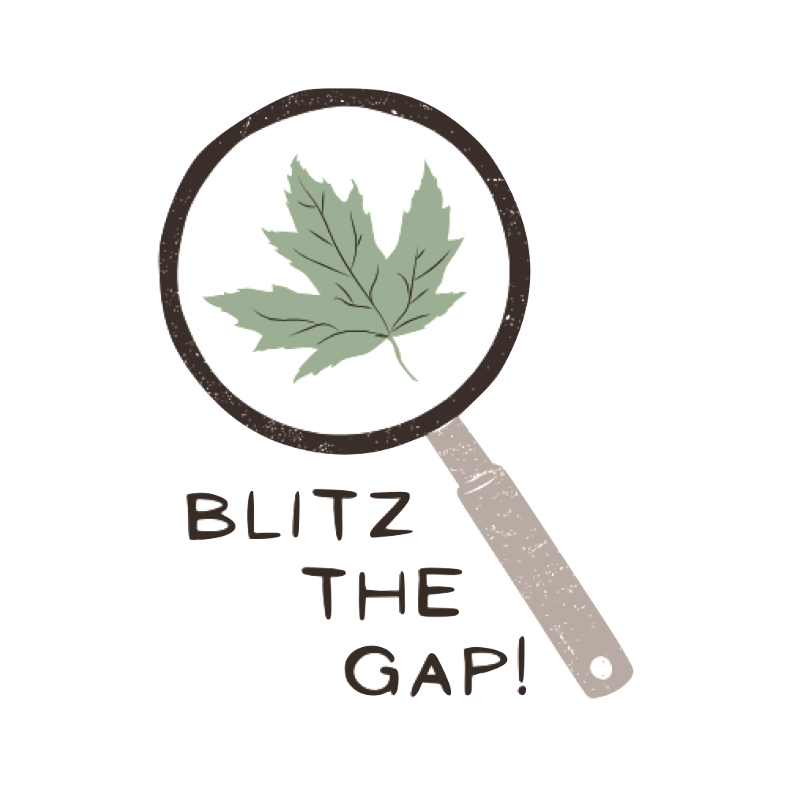Blitz the Gap Guided biodiversity sampling in Québec
The “Blitz the Gap” project aims to leverage the QCBS’s broad network to fill biodiversity data gaps.

Québec is vast and undersampled, with over 90% of the land area without any occurrence records of any taxa. These gaps would be incredibly expensive and time-consuming to fill with traditional scientific and management surveys. Citizen science offers the only viable pathway to filling these gaps quickly. However, citizen science is biased toward certain taxa and places, leaving major gaps that require coordination to fill. The QCBS is well-positioned to help fill this gap, because it is a network of universities and researchers who live, work, and study in many places in Québec. The “Blitz the Gap” (www.blitzthegap.org) project aims to leverage the QCBS’s broad network to fill biodiversity data gaps. The main funding component are Champion Grants, which are offered to QCBS graduate student and postdoc members to plan a bioblitz with a local community, a park, a library or school, or to support sampling events for themselves and their lab group. These grants offer leadership and development opportunities for QCBS members to spearhead their own initiatives to close the data gaps that limit our capacity to monitor biodiversity in Québec, and to build closer ties between the QCBS and local communities. We partnered with James Pagé from iNaturalist Canada to advise us on the project. All observations are collected in the Blitz the Gap project on iNaturalist.ca (with a specific project for QCBS members: inaturalist.ca/projects/blitz-the-gap-qcbs-champions), and will be included in Biodiversité Québec’s Atlas database to monitor biodiversity changes in Québec. The next iteration will include automated “challenges” (i.e., priority maps and species lists). We are particularly excited about making an openly accessible Bon-in-a-Box project that will let scientists and conservationists toggle scenarios to build a custom sampling scheme for their purpose (e.g., improving range coverage for data-deficient species) and will allow transparent access to the full pipeline.
For more information, contact us :
For more information, contact us :
- Laura Pollock - laura.pollock@mcgill.ca
- Katherine Hébert - katherine.hebert@mcgill.ca
Funding source: QCBS, Canadian Institute for Ecology and Evolution - Living Data Project, Environment and Climate Change Canada, NSERC
Guillaume Blanchet, Dominique Gravel, Katherine Hébert, Abbie Jones, James Pagé,Ciara Raudsepp-Hearne,Peter Soroye
Added by: Valeria, 2025-08-21

